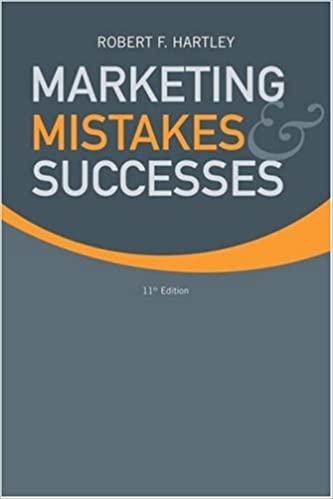Do you think a big manufacturer, such as Coca-Cola, can be coerced by a big retailer? Why
Question:
Giant retailers, especially the big discount houses, stand in a power position relative to their vendors. Part of this power lies in their providing efficient access to the marketplace. Imagine the problems of a large consumer goods manufacturer in trying to deal with thousands of small retailers rather than the few big firms that dominate their markets. These giant firms can account for 50 percent and more of many manufacturers’ sales. However, if such a major customer is lost or not completely satisfied, a vendor’s viability could be in jeopardy.
Retailers like Wal-Mart make full use of their power position. Take paying of invoices, for example. Many vendors give a 2 percent discount if bills are paid within ten days instead of 30. Wal-Mart routinely pays its bills closer to 30 days and still takes the 2 percent discount. Wal-Mart has also led in “partnering” with its vendors. This partnering really means that vendors have to pick up more of the inventory management and merchandising costs associated with Wal-Mart stores, with most of the costs involved in providing fast replenishment so that the stores can maintain lean stocks without losing customer sales through stockouts.
So-called slotting fees are common in the supermarket industry, with manufacturers paying to get things on store shelves. It was estimated that some $9 billion annually changed hands in private, unwritten deals between grocery retailers and food and consumer goods manufacturers.
The following is an example of a slotting fee stipulation of a supermarket chain:
Effective January 1, 2006
Our slotting fee is . . . $4,500
An item authorized will remain authorized for a minimum of six months (as long as the basic cost does not go up substantially). Many times it is the “slotting fee” that determines whether or not we authorize an item.
Given the coercive power of a big retailer, a vendor is practically forced to meet their demands no matter what the cost.
Stocks
Stocks or shares are generally equity instruments that provide the largest source of raising funds in any public or private listed company's. The instruments are issued on a stock exchange from where a large number of general public who are willing...
Fantastic news! We've Found the answer you've been seeking!
Step by Step Answer:
Related Book For 

Question Posted:





